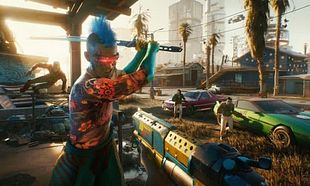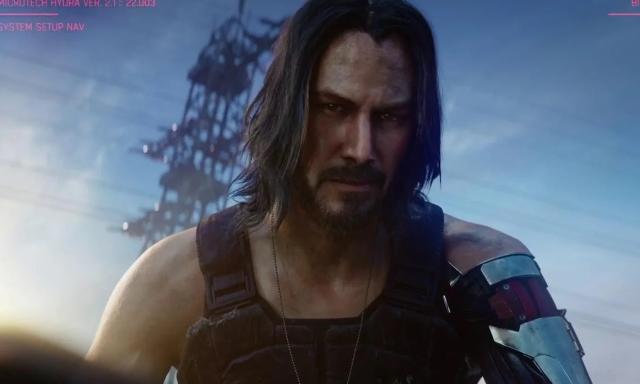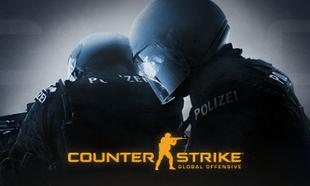There is a scene in every Hollywood disaster movie where a nerd played by someone like Jeff Goldblum or Paul Giamatti warns the President that a disaster is inbound, but are ignored until it's too late.
With the release of 'Cyberpunk 2077', the prophecy predicted for years by journalists and savvy gamers came true; a game by a big company was going to release in such a broken and unfinished state it would end up as one of the biggest controversies in gaming history.
No one expected it to be 'Cyberpunk 2077' of all games.
Following the critical and commercial success of 'The Witcher 3: Wild Hunt', the sky truly seemed the limit for the Polish developers.
If there was any developer that took their game seriously and put the project before the profit, it was CD Projekt Red.
'The Witcher 3' itself was subject to numerous delays, and despite some slight issues with bugs upon launch, it ended up racking up Game Of The Year awards, as well as selling over 30 million copies by 2020.
Prior to the launch of the Nintendo 64, Nintendo icon Shigeru Miyamoto was quoted as saying "a delayed game is eventually good, but a rushed game is forever bad."
The context surrounding the oft-repeated quote was the Nintendo 64 release date being delayed by three months to meet Nintendo's high standards.
Over 20 years later when 'Cyberpunk 2077' became the most-hyped video game this side of a 'Grand Theft Auto' or a 'Call Of Duty' game where you play as Batman, expectations were at fever pitch.
A 2018 gameplay demo sent hype sky-high, and looking at the graphical and gameplay quality in the video is laughable compared to what the finished product looked like.
Every little drip feed from CD Projekt Red was glossed and gleamed over like the protagonist in an Oliver Stone film, and hype hit levels previously unseen when Keanu Reeves showed up on stage at E3 2019 to announce his participation at the game.
Cue an internet meltdown.
However, the tsunami of PR generated by Reeves rocking up on stage at the E3 press conference was papering over the cracks.
By June 2019, development on the game had barely started, and even then, there were signs the game was in major trouble.
A New York Times article from December 2020 captured the mood at the studio:
"Developers were increasingly concerned with some of the grand promises being made by management on the promotional marketing tour. Far into the game’s development, former employees said, the hyper-customisable and endlessly explorable world being sold to players was nowhere close to manifesting."
Over-promising and under-delivering is a curse that has afflicted many game developers - just ask Peter Molyneux or Todd Howard.
Development on 'Cyberpunk 2077' only began in earnest in 2017, despite the game being formally announced in 2012.
There is a common misconception that the game was in development from 2012 and was being developed concurrently with 'The Witcher 3', but the finished product was the result of a mere 3 years of development as opposed to the purported 8.
Exploratory work only began on the project around 2016 following the release of DLC for 'The Witcher 3'.
3 years to develop a video game may sound like a reasonable amount of time to finish a game, but with a game as vast and with as many variables as 'Cyberpunk 2077' it needed the bones of at least 5 years to fully realise the game's potential.
'Grand Theft Auto 5' took 5 years to make from a blank piece of paper to a finished product, and even then the game was the victim of multiple delays.
Playing the game one year later gives the distinction of a game that is still in early access.
'Cyberpunk 2077' currently exists in a Twilight Zone between public beta and game in early access.
In the course of my work, developers often send out unfinished games for critics and that is taken into account when reviewing.
These are called "review builds," and are about 80-90% representative of what the final product is like.
One year later, 'Cyberpunk 2077' still feels like a review build.
The game still feels decidedly unfinished, and the game feels remarkably similar to 'No Man's Sky' at launch - the bones of a great game are there somewhere, but it needed at least 2 more years of development time.
However there is one incovinent truth in play with 'Cyberpunk 2077' - it's a bad role-playing game.
'Cyberpunk 2077' could have been as well-optimised and bug-free as a Nintendo game, but on a fundamental level, the role-playing elements are sorely lacking.
For all the talk of the game having a sprawling and epic narrative, the choices players make don't make that much difference.
In esscence, 'Cyberpunk 2077' is essentitaly a Telltale game that had the budget to bring in Keanu Reeves.
In 'The Witcher 3', the choices player made mattered.
In 'Cyberpunk 2077', any answers the players make have all the effects of the 'Fallout 4' dialogue system - two flavours of yes, a witty response that is also a yes, and no, that works its way around to becoming a yes.
For a role-playing game, that's a fairly severe problem.
However, a shoddy dialogue tree system is the least of 'Cyberpunk 2077' and its laundry list of problems.
The game was infamously pulled from PlayStation Store shortly after launch and didn't return until June 2021.
A game as high-profile as 'Cyberpunk 2077' being removed from the digital storefront on what was the most popular console was a scandal the gaming industry had never seen but was often warned about.
In the 2010s, it became more common for developers to release games in a perpetually unfinished state, with the idea of adding in improvements further down the line as free software updates.
Software updates are a perfectly natural part of modern technology, but where the lines get blurred is when the consumer is left on the hop for it.
A consumer buys a game for roughly €60 minimum at launch, but don't get the full product.
In fact, it has become more commonplace for gamers to wait a year until the game becomes discounted on digital storefronts with all the downloadable content added in and all the fixes made, for half the price.
This, however, costs developers money.
Developers make their money from the likes of pre-orders or day one purchases at full retail price, so selling a game 18 months after the fact at half-price is not in their best interests.
This vice of modern gaming culture came to a head with the release of 'Cyberpunk 2077'.
The game was going to be successful no matter what, and CD Projekt Red could have shipped boxed copies of the game containing nothing but a CD of 'Agadoo' and it still would have made money.
By choosing to release 'Cyberpunk 2077' in such a broken state, CD Projekt Red shed their skin; they weren't the champions of gamers everywhere, a spirited rebel standing up to the traditional developers who put out rushed out content to be fixed down the line, they became the machine they raged so hard against.

Charging €60 for a game that purports to be a finished game is taking a not insubstantial amount of piss.
A rush of interviews and features were published in the immediate wake of the December 2020 launch, and it became a game of "he said, she said."
Some articles were quick to blame the higher-ups at the company who wanted the game to meet a 2020 release date and cash in on the lucrative Christmas market, while other articles point to a development team in over their heads, with "feature creep" and over-ambition stifling the game's ambitions.
Whatever side you take in this 'Rashomon' style yarn, the consumer was the loser.
Speaking to a Polish newspaper in November of this year, CD Projekt Red Adam Kiciński remained bullish, saying “Releasing a game in a new franchise brings many challenges and risks, especially when the concept is so complex. We brought to life a huge, vibrant futuristic city called Night City, where the characters’ non-linear stories take place."
“We’re proud of many aspects of the game, but as we know, not everything went our way. Nevertheless, the brand awareness of Cyberpunk that we’ve managed to build is huge, and the game universe, its characters and details have fans all over the world."
“We believe that in the long run Cyberpunk 2077 will be perceived as a very good game, and like our other titles, it will sell for years – especially as the hardware gets more powerful over time and we improve the game."
'Cyberpunk 2077' still has a dedicated fanbase as Kiciński notices, and the game still possesses a decent online following, but it's nowhere near the generation-defining, landscape-altering masterpiece many expect.
Most gaming journalists are running pieces just like this one, analysing where the game one year on, and Inverse ran with the headline "IN ONE YEAR, CYBERPUNK 2077 WENT FROM DUMPSTER FIRE TO LOVABLE TRASH HEAP".
In December 2021, the game has a similar reception just shy of 'Fallout: New Vegas', another legendarily bugged game.
The difference, however, is that 'New Vegas' had decent critical reviews at the time and sales remained solid.
'Cyberpunk' sold somewhere in the neighbourhood of 15 million copies at launch, but sales have fallen to about 5 million for the enterity of 2021.
The initial pre-launch wave of publicity and excitement for the game has now faded from the ether, and news of the game's reputation spread far and wide.
The game turned a major profit, but at the cost of CD Projekt Red's reputation taking a battering it has yet to recover from.
A film comparison to this fable is 'Heaven's Gate', director Michael Cimino's follow-up to his Oscar-winning hit 'The Deer Hunter'.
After the Oscar sweep, Cimino was given essentially unlimited money by United Artists to make his new sweeping epic.
Cimino quickly ended up going over budget and over time.
An often-repeated anecdote is Cimino would wait hours for the right cloud to roll into frame, holding up filming even further.
The film ended up running 4 times over its budget, costing $150 million in today's money, and ended up making $10 million at the box office.
'Heavens Gate' was such a disaster it ended up killing the nascent "New Hollywood" movement of the 1970s and helped usher in the studio-driven landscape you see today.
CD Projekt Red had their 'Deer Hunter' moment with 'The Witcher 3' and proceeded to make a 'Heavens Gate'.
In time, 'Heavens Gate' ended up receiving a degree of critical acclaim, and that would have been unthinkable at time of release - it is doubtful history will be so kind to 'Cyberpunk 2077'.
Only time will tell what ripple effects 'Cyberpunk 2077' will have on the industry at large.
With that said, the 'Cyberpunk 2077' fiasco may have a happy ending.
If there is one word to sum up gaming in 2021, it's "delays".
After the disastrous launch of 'Tom Clancy's Ghost Recon Breakpoint', Ubisoft elected to delay their games and overhaul their development process, leading to yes, more delayed games, but better products.
As a result, Ubisoft has had a relatively quiet 2021 following the release of 'Watch Dogs: Legion' and 'Assassins Creed: Valhalla' in late 2020.
Ubisoft have been guilty in the past of releasing games in an unfinished state, and one would hope the likes of Ubisoft and Bethesda, proponents of releasing games in a buggy and glitchy state, have learned their lessons.
In the wake of 'Cyberpunk 2077' any developer that wants to send a game out the door in an unfinished state will be rightfully beat back by journalists and gamers alike.
'Battlefield 2042' and 'Grand Theft Auto: Legendary Edition' learned this the hard way; in a post 'Cyberpunk 2077' world, you don't release a game until it's damn well ready for prime time.




















































































